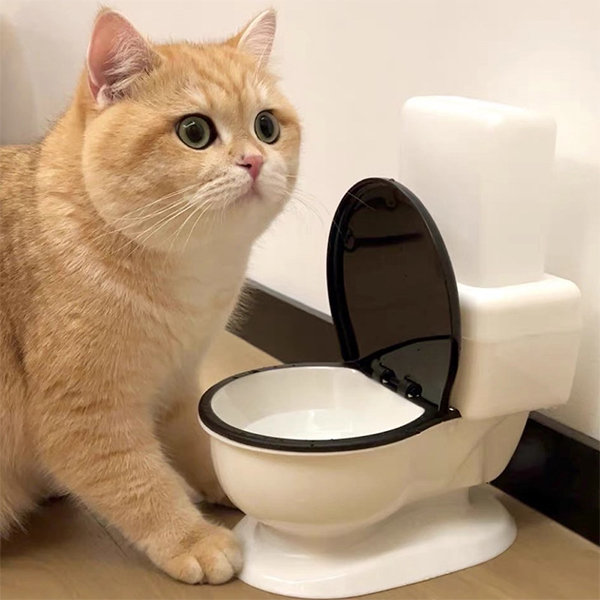Avoid Clogs and Damage: Don't Flush Cat Poop Down Your Toilet - Professional Insights
Avoid Clogs and Damage: Don't Flush Cat Poop Down Your Toilet - Professional Insights
Blog Article
This post below about Don’t flush cat feces down the toilet is really remarkable. You should take a peek.

Introduction
As cat proprietors, it's necessary to be mindful of just how we deal with our feline close friends' waste. While it might appear practical to flush feline poop down the toilet, this practice can have destructive repercussions for both the atmosphere and human health.
Ecological Impact
Flushing cat poop introduces unsafe virus and parasites right into the supply of water, posturing a substantial risk to marine ecosystems. These pollutants can negatively influence marine life and concession water top quality.
Health Risks
Along with ecological concerns, purging pet cat waste can also posture wellness threats to people. Cat feces may include Toxoplasma gondii, a parasite that can trigger toxoplasmosis-- a possibly extreme ailment, especially for pregnant females and people with weakened immune systems.
Alternatives to Flushing
Fortunately, there are safer and extra responsible methods to take care of feline poop. Take into consideration the following alternatives:
1. Scoop and Dispose in Trash
One of the most common approach of taking care of feline poop is to scoop it into an eco-friendly bag and toss it in the garbage. Make certain to utilize a specialized clutter scoop and get rid of the waste without delay.
2. Use Biodegradable Litter
Choose eco-friendly cat trash made from materials such as corn or wheat. These clutters are environmentally friendly and can be securely taken care of in the garbage.
3. Hide in the Yard
If you have a yard, consider hiding cat waste in a designated location away from veggie yards and water resources. Make sure to dig deep adequate to prevent contamination of groundwater.
4. Mount a Pet Waste Disposal System
Purchase an animal waste disposal system particularly created for feline waste. These systems utilize enzymes to break down the waste, minimizing odor and ecological impact.
Conclusion
Responsible pet ownership prolongs past giving food and shelter-- it additionally entails correct waste monitoring. By avoiding flushing cat poop down the bathroom and opting for alternative disposal techniques, we can lessen our environmental impact and safeguard human health.
Why You Should Never Flush Cat Poop Down the Toilet
A rose by any other name might smell as sweet, but not all poop is created equal. Toilets, and our sewage systems, are designed for human excrement, not animal waste. It might seem like it couldn’t hurt to toss cat feces into the loo, but it’s not a good idea to flush cat poop in the toilet.
First and foremost, assuming your cat uses a litter box, any waste is going to have litter on it. And even the smallest amount of litter can wreak havoc on plumbing.
Over time, small amounts build up, filling up your septic system. Most litter sold today is clumping; it is made from a type of clay that hardens when it gets wet. Ever tried to scrape old clumps from the bottom of a litter box? You know just how cement-hard it can get!
Now imagine just a small clump of that stuck in your pipes. A simple de-clogger like Drano isn’t going to cut it. And that means it’s going to cost you big time to fix it.
Parasitic Contamination
Believe it or not, your healthy kitty may be harboring a nasty parasite. Only cats excrete Toxoplasma in their feces. Yet it rarely causes serious health issues in the cats that are infected. Most people will be fine too if infected. Only pregnant women and people with compromised immune systems are at risk. (If you’ve ever heard how women who are expecting are excused from litter cleaning duty, Toxoplasma is why.)
But other animals may have a problem if infected with the parasite. And human water treatment systems aren’t designed to handle it. As a result, the systems don’t remove the parasite before discharging wastewater into local waterways. Fish, shellfish, and other marine life — otters in particular — are susceptible to toxoplasma. If exposed, most will end up with brain damage and many will die.
Depending on the species of fish, they may end up on someone’s fish hook and, ultimately on someone’s dinner plate. If that someone has a chronic illness, they’re at risk.
Skip the Toilet Training
We know there are folks out there who like to toilet train their cats. And we give them props, it takes a lot of work. But thanks to the toxoplasma, it’s not a good idea.

As a serious person who reads on Don’t flush cat feces down the toilet, I was thinking sharing that section was important. Enjoyed our write up? Please share it. Help somebody else check it out. Thank you for going through it.
Call Today Report this page